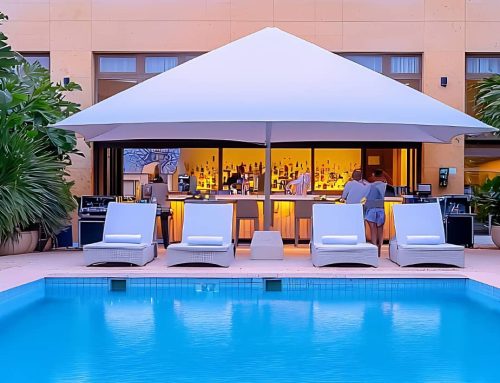Pro Tips to Make Your Next Project a Success
Many hotel owners choose to invest their money and time in renovation projects for different reasons. Some aim to improve the guest’s experience or want to keep up to date with design tends, while others improve their facility for better efficiency and performance. In general, hotel renovations are ideal for supporting the health and well-being of everyone in the building and improves the building’s longevity and efficiency.
But, when it’s renovation time, remember to “expect the unexpected.” Smart planning is the key to a successful renovation because unexpected surprises can throw you over budget, off schedule, or worse.
Assess the Present Situation
Many hotel renovation projects are aesthetically motivated, which usually leads to other important elements being neglected. In creating a renovation plan, assess the overall experience of your guests. This enables you to identify the points that you should improve both functionally and aesthetically. Share the gathered negative and positive points with your chosen architect, designer, and general contractor for references. Moreover, don’t forget to also look into the operational aspect of your hotel. Renovation isn’t only for visual improvement but also for achieving ease and efficiency of service.
Account for the Renovation Cost
Figuring out the overall cost may depend on several factors, such as the size of the project, the materials and equipment needed, and the contractors you’ll be hiring. You can take per-room costs as a guide. For example, purchasing a new TV stand, dresser, and table for a room can, on average, total from $2,000 up to $4,000. Spend time to understand the price ranges of per-room renovation before accounting for the overall expense. Understanding your budget and possible costs leads directly into our next tip.
Define the Scope of the Renovation
Your scope and your schedule will be determined by your budget. Understand any brand requirements and determine what is preferred and what is mandated. Take into consideration what renovations might be immediate needs and which ones could wait if the budget is being stretched. Also ask your operations team for their input as well. You may not be able achieve all their wants, but they know their guests and can provide what needs to be updated for maximum guest impact. Knowing how to work within these guidelines will refine the scope of the renovation so that money and time is not being wasted.
Budget And Bids
Focus on contractors with hotel experience. They understand the impact of lost revenue and the urgency in turning around rooms efficiently and quickly. Contractors less familiar with hotels can tend to fall behind, causing the schedule to slip and additional revenue displacement. When reviewing proposals, the lowest bid is not always the best. Leveling proposals is a significant step to confirm each contractor is quoting the same scope.
Don’t Forget the Exterior
Your hotel’s curb appeal is a direct reflection of what guests should expect during their stay. After all, the first impression is crucial for the business. The first thing to focus on is the building façade. Invest in paint coating to hide wall imperfections and boost the value and aesthetic of the structure. This is also a wise idea to improve the protection of your building against weather and ultraviolet damage.
Plan For The Unexpected
Be sure to set funds aside for soft costs such as architectural fees, procurement fees, project-management fees and other applicable costs. It’s also essential to put additional funds (contingency) aside to cover unexpected costs such as hidden conditions and weather-related issues.
Building The Team
Proper selection of the team is vital. All players need to possess extensive knowledge of the lodging industry, the brand being considered for the project, and be able to work well with the other team members. Local knowledge is a bonus with access to labor and the municipal approval process. Interviewing applicants prior to engagement helps get an understanding of their hospitality knowledge.
And, consistent communication with the team is essential. GLR, Inc. places a high value on our communication and customer relationships to make sure the best team is pulled together for any given project. A project can take anywhere from a few months to several years and communication will keep everyone informed, eliminate challenges and keep the team engaged in the process.
Following these simple rules will help provide a rewarding renovation and allow owners to keep control of cost and minimize lost revenue.
BONUS TIP: Improve Customer Service
A hotel renovation isn’t just about improving your facilities and rooms but also about providing a better customer experience. Your hotel’s impressive visuals would be for nothing if you and your staff can’t offer ease of service to the people. Your staff should provide thoughtful and prompt service to guests, from the moment they inquire about a room to the day of the visit. Doing so minimizes disappointments and inconveniences that could ruin your hotel’s reputation.
Teach your staff how to anticipate the needs of guests while getting to know them. Creating connections can make your guests more comfortable sharing feedback about your hotel. Feedback from guests gives you the ability to make the right decisions about your facility and future renovations projects.




